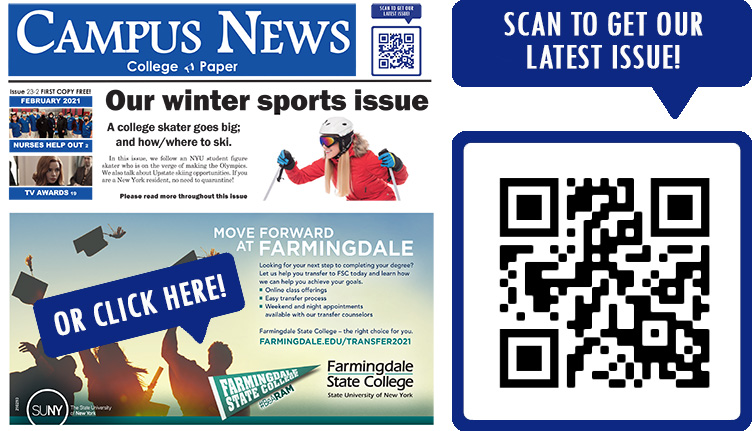The City University of New York is now offering access to a service that enables students who are experiencing personal difficulties to quickly connect with counselors via text. The support, provided by a 24/7 crisis intervention organization called Crisis Text Line, is the first of several initiatives being rolled out by CUNY to expand mental health services at a time when students across the country are struggling with the effects of the COVID-19 pandemic. Recent studies by the Centers for Disease Control and Prevention have found that three-quarters of Americans between 18 and 24 report poor mental health tied to the year-long health crisis.

CUNY students who are struggling with any kind of psychological or emotional problems can text 741741 to initiate a free and confidential conversation with a trained volunteer and receive a referral for further help if necessary. The crisis counselors are trained to help callers “move from a hot moment to a cool calm to stay safe and healthy, using effective active listening and suggested referrals” – all through text message. Crisis Text Line has gained widespread attention for its success in helping people cope with mental health issues and other crises since 2013.
“The Crisis Text Line is just the first of many ways we are strengthening the mental health services we provide to CUNY students at a time when many are facing psychological burdens that can impede their academic success,” said Chancellor Félix V. Matos Rodríguez. “It is the kind of easy-access innovation that can help students cope with the many stresses of this uncertain and isolating time.”
Along with the text service, CUNY is ramping up several initiatives to expand and enhance mental health services.
Expanding Teletherapy
The University is providing 10-hour training courses to 120 campus clinical counselors that will lead to their certification in “telemental health” counseling. CUNY is also acquiring access to Talkspace, a platform that allows out-of-state and international students to get teletherapy from licensed counselors via text or teleconference. CUNY mental health professionals are restricted by law from doing teletherapy across state lines.
These initiatives will allow CUNY colleges to reach more students with face-to-face online counseling and other remote wellness services as they continue to pursue their degrees at a distance from their professors, classmates and campuses.
In the next few weeks, the University will begin providing faculty and staff with access to an online training program called Kognito, a suite of real-time simulations aimed at helping them identify and respond to students in crisis. The simulations cover topics including substance abuse, family relations and a range of mental health issues. The website will be customized for each CUNY college, with links to mental health and wellness programs on the campuses.
Support to Campuses
CUNY has allocated about $5 million to its senior and community colleges to bolster their student mental health and wellness services during the pandemic and beyond. The campuses have options including hiring new staff, providing professional development to current staff and using a variety of new digital platforms.
Prior to the onset of the COVID-19 crisis, CUNY had begun developing a multi-faceted plan to expand campus mental health services. The initiative grew out of surveys of student wellness by Healthy CUNY, a University-wide initiative that seeks to remove health-related barriers to educational achievement. The findings quantified mental health concerns among CUNY students – mirroring national trends – and growing evidence has shown that students who struggle with concerns such as depression and anxiety have lower grades, take longer to earn their degrees and drop out at higher rates.
The pandemic has exacerbated these conditions. According to the Healthy CUNY COVID-19 student survey conducted during the height of the pandemic’s first wave last spring, 40 percent of respondents reported feeling nervous, anxious or on edge during more than half of the days in the two weeks prior to the survey – more than double the number in a similar survey conducted in 2018.







Facebook Comments